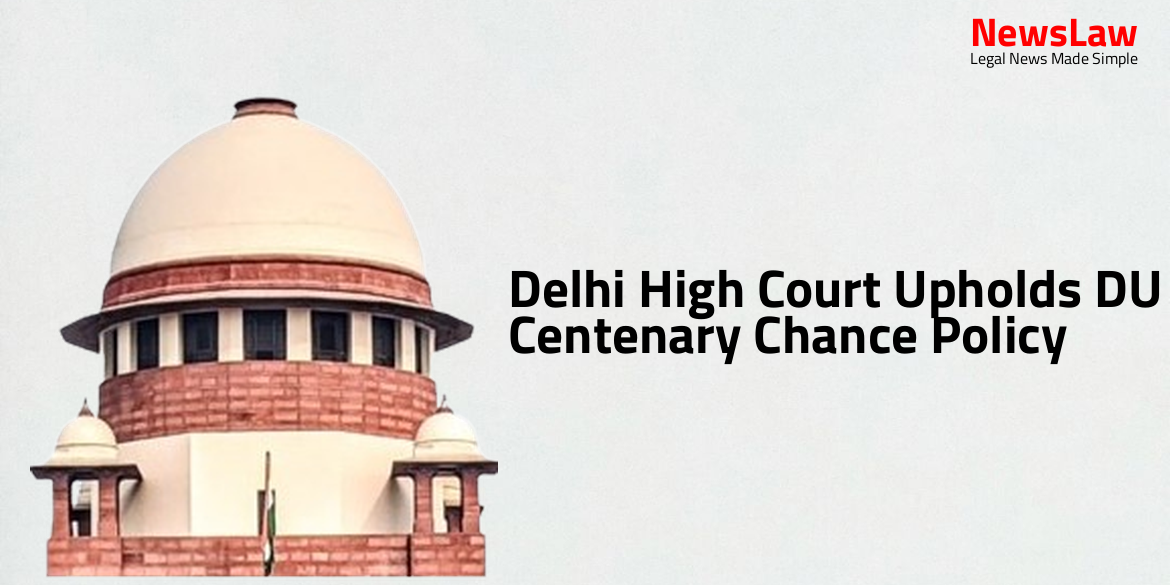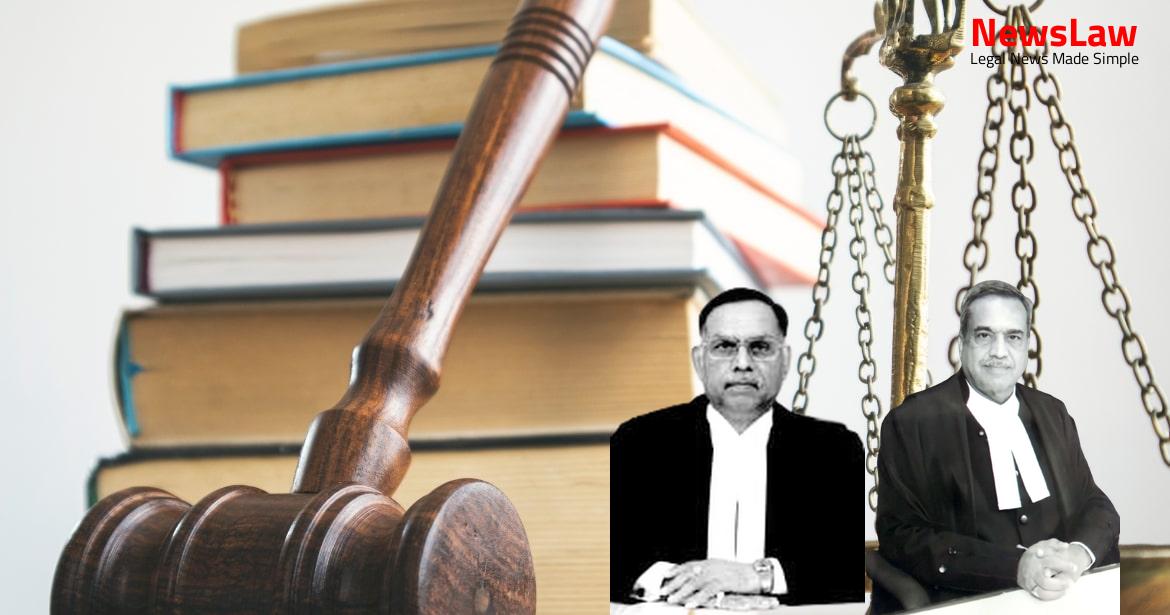In a significant legal ruling, the Supreme Court Of India has issued a judgment on the timely completion of transmission lines in a hydel project case involving the State of Kerala and KSEB. The case delves into the implications of delays in transmission line construction on commercial operations in the hydel project. Stay tuned for key insights on this crucial judgment!
Facts
- The pre-1992 tariff concession was allowed to the appellant for the period from 1 October 1994 to 30 September 1999.
- The date of commissioning was defined as the date power generated by the appellant is fed into the KSEB grid.
- The appellant as the project agency was to operate the unit for 30 years from the date of commissioning.
- An amount of 2.13 crores was requested by KSEB for construction of a transmission line.
- The appellant deposited the amount on 5 October 1998.
- A writ petition under Article 226 of the Constitution of India was filed due to delays in the construction of the transmission line.
- Commercial production commenced on 1 October 1994.
- New industrial units received exemptions from enhanced electricity tariff for five years starting from 1 January 1992.
- The appellant set up a Hydro Electric Project at Kuthungal, Idukki District as a captive power project.
- An MoU with KSEB was executed for setting up a hydel project at Kuthungal.
- The civil construction work was completed, and one of the generators was commissioned on 15 May 2000.
- An extension of the pre-1992 tariff was granted to the appellant until 20 August 2000.
- The pre-1992 tariff was at Rs 0.42 per unit compared to Rs 3.30 per unit for thermal power purchased by KSEB.
- Disputes between parties were to be referred to the Government of Kerala as per the agreement.
- The appellant was billed under prevailing tariff from 21 August 2000.
- The High Court dismissed the Writ Petition filed by the appellant under Article 226 of the Constitution of India.
- The State Government opined that there was no penal provision for delay in construction by KSEB and denied the appellant deemed generation status and pre-1992 tariff concessions.
- The State Government directed the appellant to continue remitting pre-1992 tariff, pay the difference with concessional tariff in instalments, and waived penalties.
- The High Court held that the agreement did not specify a time limit for transmission lines provision, and there was no deliberate delay by KSEB.
- The Division Bench concluded that the agreement did not anticipate power evacuation issues due to delayed transmission lines, hence the Writ Petition was dismissed.
- The High Court directed the State Government to address the appellant’s representations following the dispute resolution procedure in the agreement.
Arguments
- The appellant completed construction of the two units of the hydel project in pursuance of the agreement dated 30 December 1994.
- The failure to complete the construction of transmission lines directly impacted the appellant as it hindered commercial operation.
- KSEB had the obligation to complete the installation of transmission lines within the stipulated period for the commencement of commercial operation.
- Significant tariff concessions were granted to the appellant based on the policy decision of the State of Kerala.
- The appellant faced financial losses due to having to purchase electrical power from KSEB at higher rates during the delay in transmission line completion.
- The High Court’s conclusion that there was no time limit for the construction of transmission lines in the agreement was deemed incorrect.
- The appellant should be compensated for the situation caused by KSEB’s default in completing the transmission lines.
- The contract between the parties does not have provisions for consequences of delay in erecting transmission lines by KSEB.
- KSEB undertook to fund a portion of the transmission line beyond 4 kms at the cost of the appellant.
- The appellant, being a captive power unit, is not entitled to deemed generation status.
- A concessional tariff already availed of by the appellant is not applicable beyond 20 August 2000.
- The State Government’s decision dated 7 February 2001 found no deliberate act by KSEB in the delay of transmission line construction.
- The acquisition of land for the transmission line construction led to protests from farmers causing delays.
- Due to the protest-related delays, the appellant’s claim for deemed generation status and concessional tariff beyond the specified date is not legally valid.
Also Read: CRPF Act: Validity of Rule 27 for Compulsory Retirement – Case of Head Constable vs. CRPF
Analysis
- The State and its instrumentalities cannot act arbitrarily in dealings with private parties.
- The obligations under the agreement between the appellant and KSEB must be fulfilled within specified timelines.
- The delay in constructing the transmission lines by KSEB led to the appellant being unable to inject power into the grid.
- The State’s decision based on the contract needs to be revisited considering the performance of both parties.
- The sanctity of contracts and legal enforcement of obligations are crucial for commercial activities.
- The construction of the transmission line by KSEB was essential for the appellant to commence commercial operations within the agreed timeline.
- The delays in construction due to external factors should not disadvantage the private investor who acted based on the State’s policy.
- The contract specified timelines implicitly, and obligations of both parties must be understood in the context of the entire agreement.
- The concessions provided by the State to encourage industrialization do not invalidate the contractual agreement between the parties.
- The contract includes provisions to address situations where KSEB’s grid cannot absorb the energy generated by the project.
- The delay in constructing the transmission line affected the appellant’s ability to utilize the power generated from the project as per the agreement.
- The High Court’s decision was justified in not imposing a particular policy measure on the State.
- The concessional power tariff was extended until 20 August 2000 based on the State Government’s view.
- The appellant was not automatically entitled to deemed generation status, as ruled by the High Court.
- The State Government should determine how to address the private investor’s grievance within legal frameworks and its own policies.
Also Read: DAMEPL vs. DMRC: Curative Petition and Arbitral Award Restoration
Decision
- The impugned judgment and order of the High Court dated 21 August 2015 has been set aside to facilitate the exercise.
- The appeals have been disposed of based on the directions given.
- The appellant has the liberty to supplement its earlier representations with additional submissions before the State Government within one month of receiving a certified copy of this order.
- It is expected that the State Government re-assess the matter fairly and make a final decision for the dispute to attain finality.
- There is no order as to costs involved in this matter.
- Both the State Government and KSEB are required to revisit the entire matter together and make a decision within four months from the receipt of a certified copy of this order.
Case Title: INDSIL HYDRO POWER Vs. STATE OF KERALA
Case Number: C.A. No.-005943-005945 / 2019



